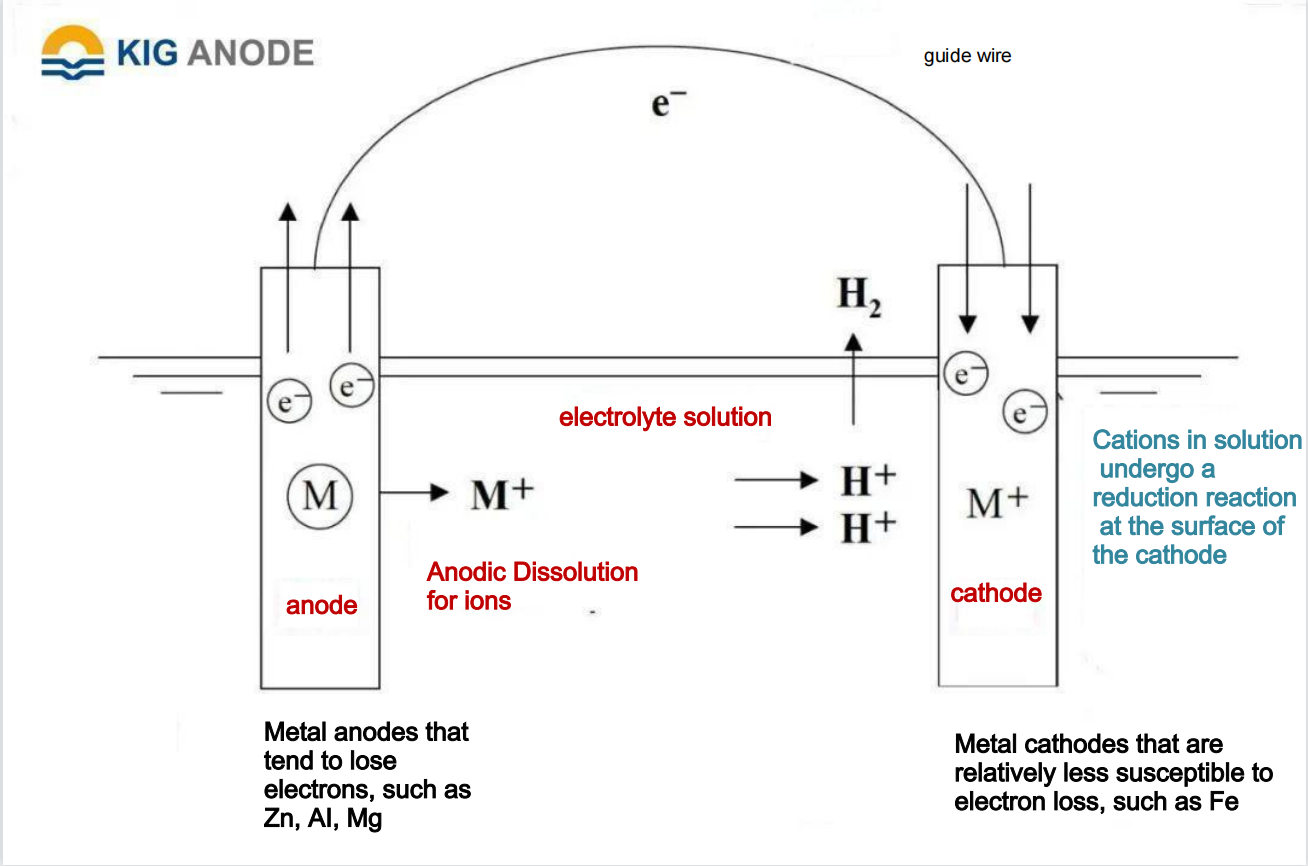A few things you have to know about sacrificial anodes
Sacrificial anode, as the name suggests, is to sacrifice oneself to protect others. Comparison of official explanation, sacrificial anode refers to the electrochemical theory of metal as anode case, the anode (metal) with the outflow of current and gradually consumed, so it is called sacrificial anode. Sacrificial anodes are usually only economically used to protect structures with low current demand and in low soil resistivity environments.
What materials can be used as sacrificial anodes?
①To have a sufficiently negative stabilizing potential;
② The self-corrosion rate is small and corrosion is uniform, and there should be high and stable current efficiency;
③ The anode material should have high electric capacity;
④ There must be high current efficiency;
⑤ The working anode should be small in work, the dissolution should be uniform, and the product should be easy to come off;
⑥ Corrosion products do not pollute the environment and are harmless;
⑦ Wide source of materials, easy processing and low price.
Commonly used sacrificial anodes are mainly:
① magnesium alloy sacrificial anode: mostly used in soil environment, application conditions soil resistivity ≥ 15Ω-m.
② zinc alloy sacrificial anode: used in seawater or low resistivity soil, application conditions soil resistivity ≤ 15Ω-m.
③ Aluminum alloy sacrificial anode: mostly used for cathodic protection in the sea or container (storage tank).
By these three metal materials and produce a variety of shapes, types of different sacrificial anodes.